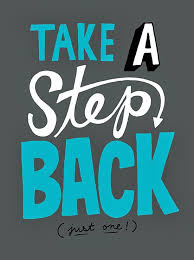Introduction
 Finding your way in the labor market can be quite difficult. Finding a job is not so easy. For that matter, holding on to a job is not easy either. And what when you meet bad bosses or nasty colleagues? To help you out, I am here to answer frequently asked questions about work. Today: disagreement at work with a colleague or customer, how do you deal with them?
Finding your way in the labor market can be quite difficult. Finding a job is not so easy. For that matter, holding on to a job is not easy either. And what when you meet bad bosses or nasty colleagues? To help you out, I am here to answer frequently asked questions about work. Today: disagreement at work with a colleague or customer, how do you deal with them?
Read more and find out. Or check out my suggestion to prepare your own escape route and start making money on the side. See the last paragraph!
Do not be afraid
The first order of business is that a firm discussion should not deter you. Don’t try and avoid discussions. The exchange of arguments and information in an honest conversation is instructive and it is an opportunity to get closer together. This is of course on the condition that any discussion is held in a civilized manner. No screaming, no cursing, no name-calling. There should be preparedness to listen to each other’s views, however contrary they are.
All of us should accept that difficult conversations are sometimes inevitable. In other words: there is always someone you don’t get along with. If you are very structured, you may hate chaos. But not everybody is the same, so live with that.
8 tips to guide you through a tough conversation
1. Build your confidence
People with little self-confidence close up in a discussion or start ‘fighting’ by putting up a big mouth. Don’t be  guided by what others think, start from your own qualities. Then you are less likely to get upset or angry.
guided by what others think, start from your own qualities. Then you are less likely to get upset or angry.
This means that you should prepare well for any conversation as is the case with company meetings. Find out where your weaknesses lie and work on them. Go over the purpose of the conversation and think about what you are going to say, but expect at the same time different opinions from other people.
2. Determine your goal
This is always important, but very essential in the case of for example your performance appraisal. What is it that you would like to achieve? Do you want more salary or attention for cooperation that is not going well with a colleague? Would you like more training? A better working environment? Determine exactly what you want to achieve and prepare in a targeted manner.
I know from experience that such an approach will be giving you a much better chance at getting what you want.
3. Prove your arguments
Always demonstrate the connection between your argument and reality. Does the boss think your turnover is too  low? Then you might say: we are in an economic recession due to the corona crisis. But how do you explain that colleagues do achieve their turnover? Provide proof: explain why something affects your work. Also ask your interviewer for evidence.
low? Then you might say: we are in an economic recession due to the corona crisis. But how do you explain that colleagues do achieve their turnover? Provide proof: explain why something affects your work. Also ask your interviewer for evidence.
I always find that in this case the best thing to do is to document your arguments. This really means that of all the things you do and see, you will keep a record with stated facts and dates. Once you have started this you will be surprised how easy it is to do. It will also help and substantiate your own memories.
4. Practice in advance
Unfortunately, some difficult conversation often strikes you unexpectedly. But most conversations you will see coming, in which case you think of questions that can be addressed. Think carefully about your evidence and practice with a friend, partner or housemate beforehand.
Practicing with a friend might seem superfluous, but once you have tried it, you will see that matters will occur that you did not see before. Remember that you might have only one chance to get it right.
5. Be aware of the emotions
We say emotions will be a factor in our debates. Take the international debate on immigration. Sometimes there are people who react very angry: they don’t want more refugees, period. The other side might say, we need to help everyone. Try to find out what is at the root of why someone is so emotional. Are they afraid that their child has less chance of a home, is it unsafe on the street? Do they think you are hardhearted? Then you also know what underlying interest is affected and you can come closer together in a dialogue.
Also listen to your own emotions. Try not to push away aggression or anger immediately. It is a signal that a conversation is going the wrong way; something has to change.
6. Take a step back
For example, say that things are not going as well as you hoped for and ask what you can do about it. You can also intervene implicitly by changing the subject. Or suggest stopping the conversation to calm both of you.
I would like to add an important note to this subject. It should never be your aim to straighten everything out in only one conversation. You can hope for this, but adapting to the way the discussion goes can be beneficial too. What I am trying to avoid here is an obvious disappointment from your side. See it then as step 1 in a process!
7. Ask open-ended questions
This is a very good one as it works two ways. Open questions give the other person the opportunity to tell their story and you the opportunity to show understanding. Avoid yes-or-no questions or hard choices, for example: would you recommend our product?. Then people feel unconsciously threatened.
Instead ask: what are your main reasons you chose our product? In this way you would learn a lot more about your discussion partner. People would feel more relaxed and will open up more.
8. Get help
 If you have a disagreement, I suggest you always try to solve it yourself first. If you really can’t figure it out, ask somebody or another entity to mediate. This can be a multitude of people from your colleagues to your manager, HR, even a company doctor if necessary or support from outside.
If you have a disagreement, I suggest you always try to solve it yourself first. If you really can’t figure it out, ask somebody or another entity to mediate. This can be a multitude of people from your colleagues to your manager, HR, even a company doctor if necessary or support from outside.
The underlying thought here is that any issue can be solved one way or another!
Final thoughts + my no.1 recommendation
That said, we are all humans, we have our emotions and we all make mistakes, but in realizing this you might more easily accept other people’s mistakes.
Disagreements between persons will occur from time to time for each one of us. The difference for you can be how you will deal with them.
I have given 8 ideas and guidelines that can help you in the process. I wish you good luck!
Notwithstanding the above, I would recommend all of you who have a job to prepare for an ultimate escape route. Here it is:
Start making money on the side!
Now you are thinking, that is easy for you to say. Then you are correct, as I exactly know the way out. It is one that all of you can go for. Look at the enormous possibilities of the internet and I am saying you can do Affiliate Marketing with your own website, based on your hobby, passion or interest. But you will need the right support, you want a reasonable price and you want this scam-free.
of you can go for. Look at the enormous possibilities of the internet and I am saying you can do Affiliate Marketing with your own website, based on your hobby, passion or interest. But you will need the right support, you want a reasonable price and you want this scam-free.
I myself have been part of an affiliate marketing program since 2014, which was established in 2005 and has an ever-growing number of members. It probably is the best program worldwide and with them your chances of success are the biggest. Do you dare to join over 2 million others?
Change your life here!
I have written a full review of this unique program and if interested, you can read it by clicking here. It will tell you who they are, what they do and how they work. You would like to see for yourself first! That is possible, because my review contains a link, with which you can become a FREE member for one full week to experience this once-in-a-lifetime opportunity firsthand. No commitments whatsoever!


Disagreement can happen in any situations. It can happen with your boss, colleagues, parents, friends and so on. It is not unusual because it had to find two people same and think of an organization.
I had seen many instances of disagreement in corporate. To solve this kind of problem heeds huge amount of patience, enormous amount of self control to control emotions. Sometimes it works easily with a few talks, other times it does not. I have seen people leave corporate not because the institutions are bad but for the boss or a colleague. When you are busy, multi-tasked you will find these issues annoying.
The wise thing is to follow the advice recommended here but the best is build your business on the side so you can a choice to fall in if necessary.
Join wealthy affiliate, the world class platform to make money online along with 2 million.
You are quite right, having a job can be pretty stressful. Disagreements are from all time and you either learn to live with it or you take drastic action. After all, you do not want your health to be affected.
What I propose as an escape route, to make money on the side by way of affiliate marketing is one of the best opportunities out there.